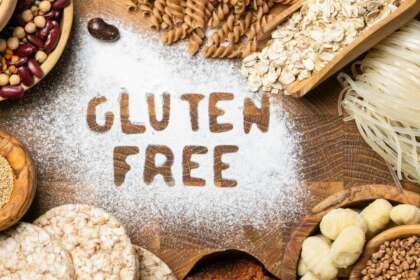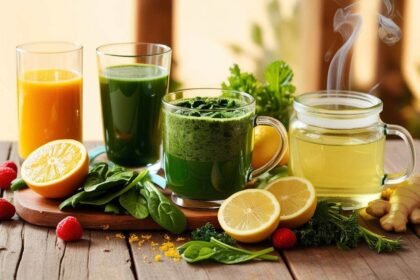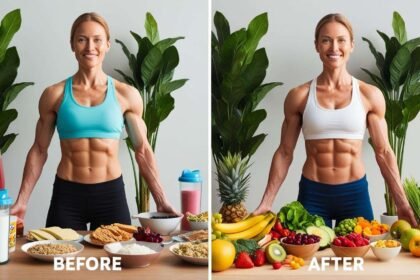Eye health is a critical aspect of overall well-being, yet it often gets overlooked in daily life. With increasing exposure to screens, harmful UV rays, and blue light, maintaining good vision has become more important than ever.
A balanced diet rich in certain vegetables can help nourish your eyes, protect them from damage, and reduce the risk of vision problems.
Let’s explore 5 essential vegetables that are proven to improve eye health and why they deserve a place in your diet.
1. Carrots
Carrots are a well-known superfood for eye health, primarily because they are rich in beta-carotene, a precursor to vitamin A. Vitamin A plays a critical role in maintaining the retina and ensuring proper night vision.
Benefits for Eye Health:
- Prevents Night Blindness: Beta-carotene helps maintain optimal retinal function in low-light conditions.
- Protects the Cornea: Vitamin A supports the health of the cornea, the transparent layer covering the eye.
- Reduces Cataract Risk: Carrots are packed with antioxidants that combat oxidative stress, a major cause of cataracts.
How to Consume:
- Snack on raw carrot sticks.
- Blend carrots into smoothies or soups.
- Add shredded carrots to salads or wraps.
2. Spinach
Spinach is a powerhouse of nutrients essential for eye health. It contains lutein and zeaxanthin, two antioxidants that filter harmful light and prevent cellular damage.
Benefits for Eye Health:
- Blocks UV and Blue Light Damage: Lutein and zeaxanthin act as a natural sunscreen for your eyes, reducing the risk of macular degeneration.
- Improves Macular Health: A 2013 study revealed that consuming spinach and kale for four weeks increased the Macular Pigment Optical Density (MPOD) by 4%–5%. Higher MPOD is linked to better eye protection and visual performance.
- Prevents Age-Related Eye Issues: Regular intake of spinach can lower the risk of cataracts and macular degeneration.
How to Consume:
- Sauté spinach with olive oil and garlic for a nutrient-rich side dish.
- Use fresh spinach leaves in smoothies or salads.
- Add spinach to omelets, pasta, or sandwiches.
3. Tomatoes
Tomatoes are another excellent addition to your diet for better eye health. They are rich in lycopene, an antioxidant that protects the retina and reduces the risk of age-related macular degeneration (AMD).
Benefits for Eye Health:
- Protects the Retina: Lycopene neutralizes free radicals that can damage retinal cells.
- Supports Overall Eye Health: Tomatoes also contain vitamins A and C, which improve vision and strengthen the eyes’ protective layers.
- Lowers AMD Risk: Consistent consumption of tomatoes has been linked to a reduced likelihood of developing AMD.
How Much to Consume:
- One medium-sized tomato per day is ideal.
- Eat tomatoes fresh in salads or cook them into sauces and soups.
- Add sliced tomatoes to sandwiches, wraps, or bruschetta.
4. Red Bell Peppers
Red bell peppers are a vibrant vegetable packed with vitamin C, an antioxidant crucial for maintaining healthy eyes. They also provide vitamin E and beta-carotene, both of which contribute to overall vision health.
Benefits for Eye Health:
- Prevents Cataracts: Vitamin C supports collagen production, essential for the cornea and lens structure.
- Improves Blood Circulation in the Eyes: Regular intake of vitamin C ensures that the tiny blood vessels in your eyes remain healthy.
- Protects Against Oxidative Stress: Beta-carotene in red bell peppers shields your eyes from damage caused by free radicals.
How to Consume:
- Chop red bell peppers into salads or stir-fries.
- Roast them and use as a topping for pizzas and sandwiches.
- Include them in soups or vegetable platters.
5. Sweet Potatoes
Sweet potatoes are an excellent source of beta-carotene and vitamin E, both of which play a vital role in eye health. Their naturally sweet taste makes them a versatile and enjoyable vegetable to include in your meals.
Benefits for Eye Health:
- Improves Night Vision: Beta-carotene converts to vitamin A, which supports healthy night vision.
- Prevents Dry Eyes: The combination of beta-carotene and vitamin E keeps your eyes hydrated.
- Fights Oxidative Damage: Antioxidants in sweet potatoes protect eye tissues from aging and environmental stress.
How to Consume:
- Bake sweet potato fries as a healthy snack.
- Use mashed sweet potatoes as a side dish.
- Add them to casseroles or stews for extra flavor and nutrition.
Bonus Tips for Eye Health
Adding these five vegetables to your diet can greatly enhance your eye health, but it’s equally important to adopt other habits that promote healthy vision:
- Stay Hydrated: Drinking plenty of water prevents dryness in the eyes.
- Follow the 20-20-20 Rule: Every 20 minutes, look at something 20 feet away for 20 seconds to reduce screen strain.
- Wear Sunglasses: Protect your eyes from harmful UV rays when outdoors.
- Include Omega-3 Fatty Acids: Foods like salmon, walnuts, and flaxseeds support retinal health.
- Get Regular Eye Check-Ups: Early detection of eye issues can prevent long-term complications.
The Bottom Note
Your eyes are a window to the world, and taking care of them should be a top priority. Vegetables like carrots, spinach, tomatoes, red bell peppers, and sweet potatoes are loaded with nutrients that support and improve eye health.
They provide a rich source of vitamins, antioxidants, and minerals that protect your eyes from damage, enhance vision, and reduce the risk of age-related conditions like macular degeneration and cataracts.
Incorporating these vegetables into your daily meals is simple and highly beneficial. Whether you enjoy them raw, cooked, or blended into smoothies, these nutrient-dense foods can make a big difference in maintaining your eyesight.
Combine these dietary choices with good lifestyle habits for long-term eye health and clarity of vision.












